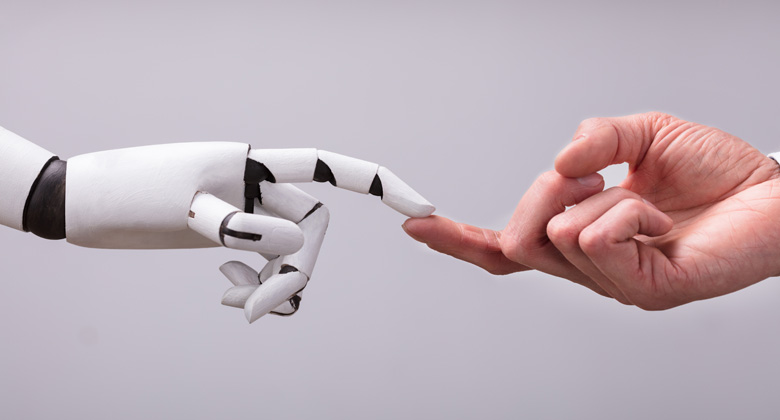Luxury mobile apps: Are we better connected?
Traditionally, high-end customers are often believed to choose personalised customer services in bricks-and-mortar stores over online shopping when buying luxury products (Mckinsey & Company). But that belief has largely been negated, thanks to the rise of ventures like Net-A-Porter who has proven that consumers are, in fact, willing to pay undiscounted prices for luxury products online.
As online sales for luxury continue to grow, more luxury brands have begun to glimpse the role of mobile apps in driving brand awareness. As suggested by a study by the New York-based Luxury Institute, about 93% of shoppers who have downloaded the apps express a positive experience. They are also likely to view the labels that offer mobile apps more “favourably” than those who do not.
From a trend to the must-have?
Most of luxury mobile apps today feature digital catalogues, interactive videos as well as behind-the-scenes footage. But these ‘essential’ features can also be found throughout other digital channels. So what exactly do luxury mobile apps offer that other digital platforms cannot?
Bentley’s emotional recognition technology is one of the latest examples of innovative luxury mobile apps that serve more than just another online shopping tool for customers. The “Inspirator” app is designed to leverage emotional recognition technology to deliver a more personalised digital experience and raise the awareness of their new Bentayga SUV.
How exactly?
Through a series of images including beaches, yachting and music, the app then “reads” users’ emotions by analysing “subtle, muscular micro-shifts and correlates them with complex emotional and cognitive states,” to understand how they interact with each image.
Based on reactions and responses, the app eventually creates a car with a tailored name and interior features. Then the user can contact Bentley to place an order for their bespoke vehicle, or make modifications on the brand’s website and share it on social media.
That is a pretty creative way to push their cars online, don’t you think?
Experience, personalisation and emotional engagement – the services that used to be exclusive to bricks-and-mortars are not only available but have also been elevated by the next generation of innovative apps.
Land Rover’s Face Watch even takes one step further by leveraging on smartwatch.
“The watch face uses the smartwatch altitude meter to track your elevation according to sea level, adapting the position of the landscapes as you climb and fall. What’s more, each landscape pans across your watch face as the day progresses, making subtle movements once every minute.”
But are apps inevitable for the luxury sector?
So the statistics suggested a positive correlation between apps and brand awareness. Should every luxury brand embark on this promising trend?
The picture is more complex.
Other findings find that “investing in mobile apps doesn’t yield the best returns and therefore should not be a high priority”, as only about 4 percent of the shoppers surveyed reported downloading a luxury brand’s app. (Mackenzie & company)
The future role of mobile apps was also the most debated topic at the Travel Weekly Group’s Connections Luxury event. While the opponents were not against apps per se, they pointed out that there is a low demand for apps among luxury customers, compared with their mass market counterparts. When it comes to tailored services, they still opt for dealing with people.
However, the arguments are also missing some important aspects.
Finding the right balance
Technologies like mobile apps, as shown via Bentley’s Inspirator, do strengthen and improve bespoke luxury services provided by a human. First of all, the ubiquity of apps doesn’t mean the death of face-to-face customer services.
For example, the time saved by using mobile check-in/out apps will improve efficiency, allowing staff to focus on delivering more personalised and experience-based customer services, and less on paperwork. Global hotel chain Accor, for example, aims to offer advanced seamless experience through mobile check-in/out, high-tech keys and wearables.
The bottom line is that both sides tend to agree that luxury mobile apps are exceptionally good at connecting the loyal customers to their favourite brands. Consumers also tend to be interested only in mobile apps that offer seamless and useful services with exclusive and detailed information for those in-the-know.
Many luxury consumers’ purchase decisions are intrinsically influenced by their digital encounters with the brands – such as social media and mobile apps. In many cases, consumers view and interact with the brand online and subsequently go back to a brick-and-mortar store to complete their purchase.
Every mobile app has something unique to offer. So, naturally every brand require a different approach to their mobile app strategy. And if you don’t have an exclusive app to offer, then you will run the risk of losing your potential customers to competitors who do.
What do you think?
Appnova is a digital agency specialising in web design, UX, eCommerce, branding, digital marketing and social media.
Keep following us on Twitter @appnova and “like” us on Facebook for useful news and tasteful digressions about geeky stuff.








0.Comments